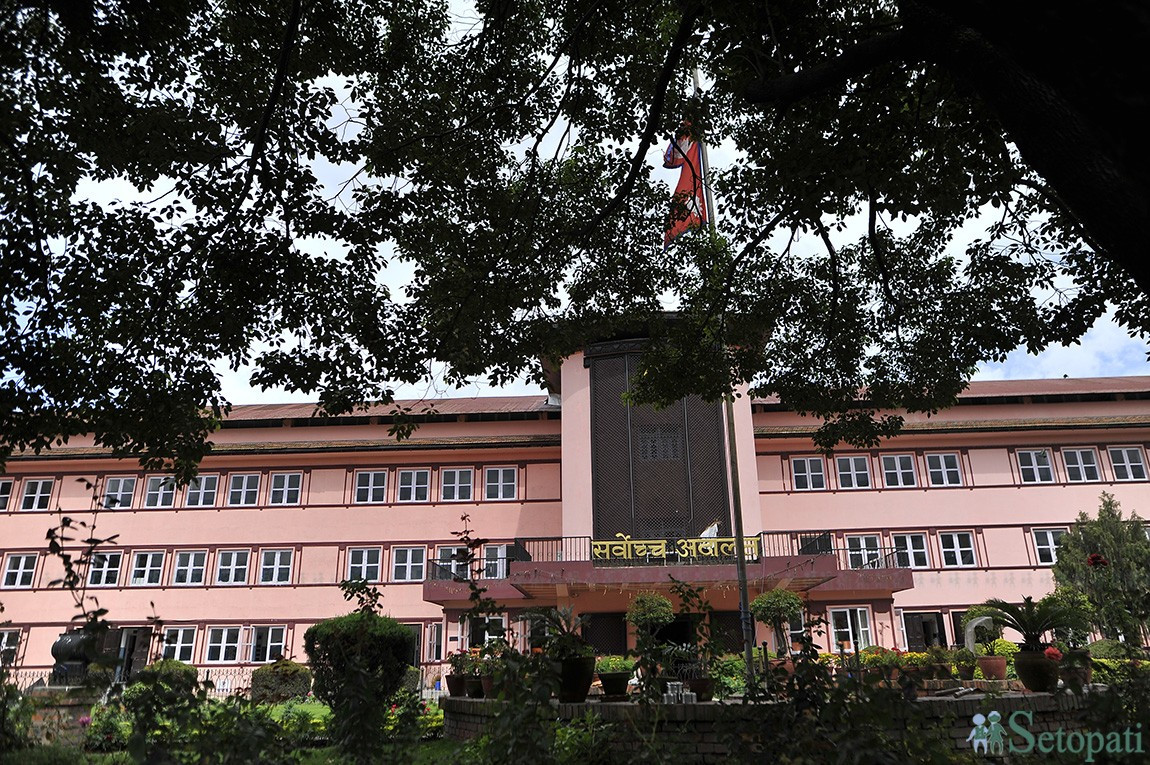The Supreme Court (SC) has ordered to not implement the Election Commission provision requiring local elected representatives to resign before filing nomination for the upcoming election to be right for now.
A single bench of Justice Bam Kumar Shrestha hearing the petition filed by Chairperson of Helambu rural municipality Nima Gyaljen Sherpa, elected on the ticket of ruling Nepali Congress, demanding revocation of the provision in the election code of conduct has issued a short-term interim roder to that regard.
The SC has also summoned both the sides for discussion on March 27 and will issue another order about whether to continue the order or not.
Sherpa submitted the petition on Sunday and it was registered on Monday. The petition demanded revocation of the provision pointing that the local bodies will remain without elected representatives if the incumbents choose to again file candidacy.
He also pointed at the legal provision requiring chief and deputy chief of a local body to submit the resignation letter to each other and added that there will be no one to submit the resignation to if both the chief and deputy chief of a single local body were to again file candidacy.
The code of conduct issued by the Election Commission states that any elected or nominated official who is receiving salary and other benefits for serving in any local body or another body owned by or under control of a local body or being run with grant from a local body must resign before filing nomination for the upcoming local election to be held on May 13.
The election commission has kept the provision on the basis of the Local Level Election Act 2017 which states in clause 13 that any person receiving salary while serving the Nepal government, or provincial government or in any body owned by or under control of the Nepal government or provincial government or being run with grant from the Nepal government cannot become candidate in the local election.
The act also prohibits any official who is receiving salary and other benefits for serving in any local body or another body owned by or under control of a local body or being run with grant from a local body from filing candidacy in the local election.

